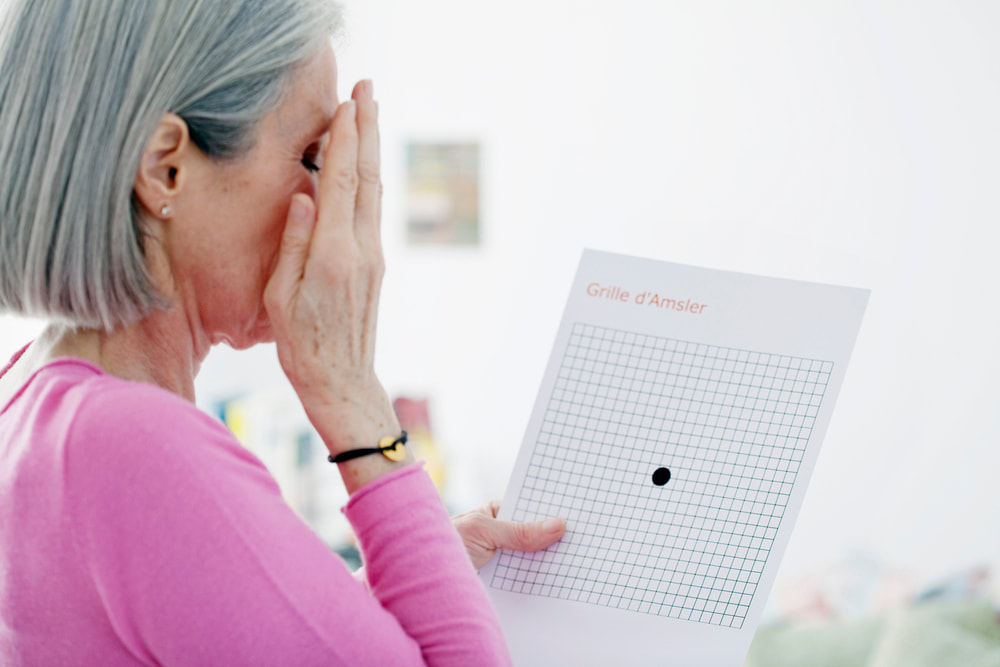AMD is one of the leading causes of vision loss.According to Prevent Blindness, in the United States, AMD is one of the leading causes of vision loss in adults over the age of 50. Knowing this statistic should encourage people to have regular eye exams. It is common for people with AMD to have some vision loss by the time they are diagnosed. Although there is currently no cure for AMD, early diagnosis and treatment may slow the progression. Too much UV ray exposure may contribute to AMD.One of the risk factors for AMD is excess exposure to ultraviolet rays from the sun. Melanin is the substance in our skin that provides some protection from UV rays. It also protects your eyes. But as you age, melanin is lost, which may put you at an increased risk of damage from the sun, and that includes the eyes. That damage is associated with an increased risk of AMD. To decrease your risk of sun damage, wear sunglasses that provide 100 percent UV protection. Wear glasses on overcast days too, since the rays can penetrate the clouds. There is more than one type of AMD.The two types of age-related macular degeneration are wet and dry. Dry AMD is much more common. According to the American Macular Degeneration Foundation, up to 90 percent of cases of AMD are dry. Wet AMD may also develop. Wet AMD occurs due to an increased growth of retinal blood vessels. The vessels start to leak blood or fluid, which scar the macula. Treatment options for wet AMD include medication that slows the growth of new blood vessels. This may also slow the progression of the condition and preserve vision. Smoking greatly increases your risk of AMD.There are some risk factors for AMD, such as age, which we cannot control. Fortunately, there are certain risk factors that we can change, such as smoking, to reduce the risk of AMD. As reported by the American Macular Degeneration Foundation, smokers have up to four times the risk of non-smokers for developing AMD. It is not entirely clear why smoking may increase the risk of certain eye conditions, such as AMD, but researchers think that smoking may decrease the protective nutrients that are delivered to the eyes. Smoking may also decrease the level of oxygen to the eyes, which increases the risk of damage to the macula. If you smoke, there are several effective ways to quit, including nicotine patches, medications, and behavior modification counseling. Talk with your doctor about the best option for you. Vision rehabilitation may help people with AMD.There is no cure for AMD, but there is treatment that may help slow how fast the disease progresses. In addition, there are ways for people with AMD to cope with vision loss, including vision rehabilitation.
Vision rehabilitation does not reverse the damage to the macula, but it does help people with low vision learn new ways to do things, make the most of the vision they still have, and adapt to the changes in eyesight. For instance, a low vision specialist may help an individual make changes to their home to move around it safely. A vision rehab program also teachers people how to do everyday activities with visual aids or other modifications. If you need a vision rehabilitation program, contact your local hospital or doctor who may be able to point you in the right direction. If you have any questions about AMD or would like to ask if an appointment with one of our eye doctors would be appropriate at this time, phone our office at 508-746-8600. Comments are closed.
|
EYE HEALTH BLOGCategories
All
Archives
July 2024
|
|
Kadrmas Eye Care New England
55 Commerce Way, Plymouth, MA 02360
14 Tobey Road, Wareham, MA 02571 133 Falmouth Road (Rt 28), Mashpee, MA 02649 |
Phone Number:
1-508-746-8600 Hours: Monday through Friday — 8 AM – 4:30 PM |


 RSS Feed
RSS Feed
